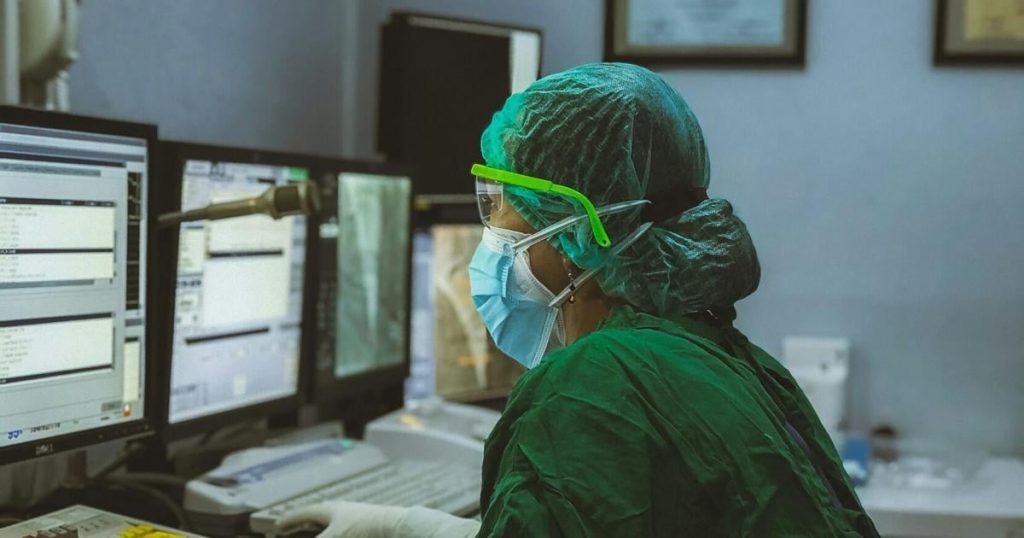(The Center Square) — Thirty-four Nevada hospitals across 13 counties are set to lose about $232 million as Medicaid qualifications get the squeeze.
The federal government has put Medicaid on the tax cut chopping block, with nearly 115,000 Nevadans losing their health insurance.
“Senate Republicans voted to raise costs on working families, rip health care from Nevadans who need it, and kill good-paying jobs across our state to ensure their billionaire friends save on their taxes,” said U.S. Sen. Catherine Cortez-Masto, D-Nevada, in a press release after the One Big Beautiful Bill Act was passed.
Those words have been echoed among Nevada Democrats since the bill was passed and it slashed Medicaid access.
Across the U.S. an estimated $24 billion in revenue will be lost by hospitals, with $232 million wiped out in Nevada alone. The Washington D.C.-based research group Third Way found that hospitals in 13 of Nevada’s 17 counties will experience lost revenue — none less than $250,000 — with the largest being over $45 million by the University Medical Center in Las Vegas.
The public health insurance program is designed for Americans with lower incomes, often covering disabled people. Of the roughly 800,000 Nevadans currently enrolled in Medicaid, an estimated 115,000 are no longer eligible.
“The cuts are pretty significant, especially looking at rural hospitals,” Darbin Wofford, the deputy director at Third Way, told The Center Square. “Taking a step back, nationwide it’s the largest medicaid cut in history.”
Between 2025 and 2034, the cut is expected to save $1 trillion, coming from a number of changes to the Medicaid program. One of the most popular changes is the strict ban on insuring illegal immigrants under Medicaid. Illegal immigrants are insured under Medi-Cal, California’s version of Medicaid.
The largest chunk of savings — and disenrollments — come from changes to the Affordable Care Act.
For non-disabled people insured under the 2010 Medicaid expansion during the passage of Obamacare, the biggest change will be a work requirement. Many people covered under this program have chronic conditions that do not qualify them as disabled. Starting in 2027, anybody covered under ACA that is 19-64 years old will need to work or otherwise serve the community 80 hours per month to receive any coverage.
“People who can work, already do work, who are on Medicaid,” said Wofford. “As a result, work requirements, both when it was tried in Georgia and Arkansas, have proven not to actually increase employment.”
But for supporters of Medicaid, the longer-term worry is that hospitals — especially those in rural areas — will be shuttered.
“If people are losing their Medicaid coverage, they still need to go to the emergency room, they still need to get health care, but what happens is that they’ll go to the emergency room, and that care that the hospital provides will go uncompensated,” said Wofford. “And the hospital ultimately will have to take that loss.”
Hospitals at immediate risk of closure are reportedly those in rural areas and “safety net” hospitals that take in outsized portions of Medicaid recipients, often in poorer urban areas.
For Republicans who passed the bill, the focus is on savings and eliminating waste.
“While this bill takes a significant step in helping modernize our healthcare system, I believe that more work will be done this Congress on the issue,” said U.S. Rep. Mark Amodei, R-Nevada, in a press release. Amodel voted for the One Big Beautiful Bill Act.
Rep. Amodei added that Medicaid enrollment had exploded across the last 15 years, to an annual cost of $870 billion in 2023. The inflated price of the public healthcare system has been the primary rally for opponents of the program, but one that still has caused division among Republicans.
“Nevada has demonstrated that federal investment in the state’s Medicaid program has improved both health outcomes and productivity, yet challenges remain,” Nevada Gov. Joe Lombardo, a Republican, said in a February press release. He urged the federal government to maintain the program.
“By leveraging federal funding, the state has expanded access to school health services, lowered the uninsured rate, and made significant progress in enhancing behavioral health care for both children and adults,” Lombardo said.
He has not spoken about Medicaid since the passage of the Big Beautiful Bill, and his office did not respond to a request for comment by The Center Square.
Lombardo and Nevada’s other leaders have yet to release a plan to deal with the Medicaid cuts.
While many hospitals will be at risk of closure, others will look to stay afloat by shifting the cost to privately insured people.
“If they’re getting less from Medicaid, they’re going to charge people with private insurance more, and that’s going to increase premiums for people who have private insurance,” said Wofford, “It really affects everybody — you can’t squeeze 20% of the health care population, and expect it to have zero effect on the rest of the population.”
Wofford added that states like Nevada will have to make one of a few financially unsavory choices in the wake of the Medicaid change.
“It can be a decrease in funding for the providers, it can mean further cuts in coverage because they can’t cover everybody, it can be cuts in other parts of the state budget like transportation and education, which are pretty heavy budget items. Or it can mean increases in taxes on the population… It’s difficult to tell exactly how each state will react,” Wofford said.


